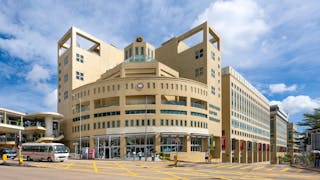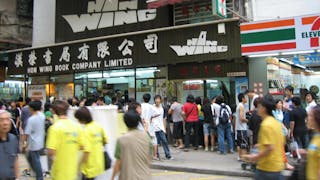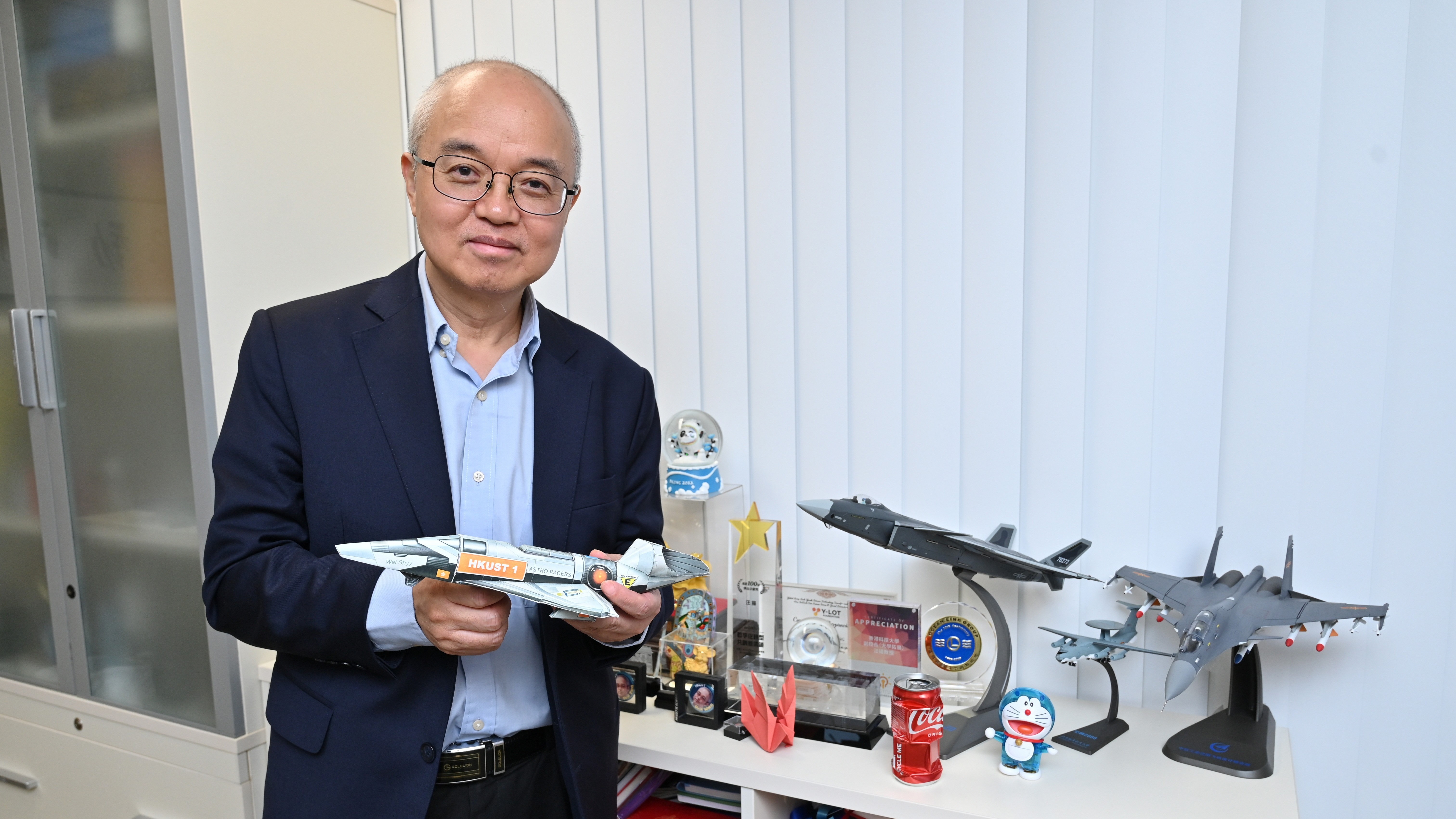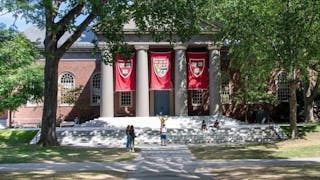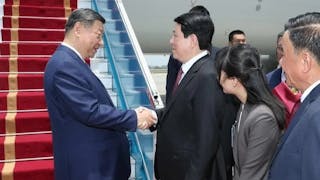很少有研究整合最近有關港澳公眾對粵港澳大灣區態度的調查結果。本文旨在填補大灣區現有報告和研究的空白,並就如何更好地理解大灣區提出具體建議。
香港中文大學香港亞太研究所於2022年11月底至12月初進行一項調查。調查發現,79%的受訪者不會在大灣區上班及居住──與2021年調查中的類似問題相比增加了25%;表示會到大灣區工作和居住的受訪者,2022年底僅佔10.1%,較2021年減少21%。2022年的調查也詢問受訪者是否會鼓勵香港年輕人到大灣區工作和居住,但有62.7%的受訪者表示不會鼓勵年輕人到大灣區城市發展,只有4.2%的受訪者表示會視情況考慮。
顯然,如果關注的是人們是否會到大灣區工作和居住,以及是否會鼓勵年輕人到那裏工作和居住,2022年調查的數據,並沒有指出到大灣區發展有希望的方向。
不過,2022年的調查結果也顯示出一些積極的方面。34%的受訪者認為大灣區為香港提供了發展機會;20.6%的受訪者表示無法提供發展機會;36%的受訪者回答是機會一半半。結果略顯有利於香港的發展,但受訪者心中也存在疑慮。
被問及大灣區發展規劃將如何促進香港的發展時,下表總結了調查結果,顯示近40%的受訪者認為大灣區能夠幫助香港的貨幣和金融發展;較多受訪者認為大灣區能夠促進香港的運輸和物流。有趣的是,較少人(2022年為35.9%)認為大灣區有利香港的創新科技。
從截至2022年底的調查結果來看,公眾對大灣區的認知與大灣區對香港的潛在貢獻存在差距。鑑於大灣區,尤其是深圳,科技和創新產業發展迅速,必然為香港的創新科技發展提供專業知識和技能。因此,特區政府及相關創科業界應向市民進行更多關於大灣區的教育。
表:對大灣區發展規劃有利香港產業發展的認同程度

資料來源:香港中文大學香港亞太研究所,載中大香港亞太研究所民意調查(cuhk.edu.hk),查閱日期:2024年1月20日。
被問及香港是否會從大灣區發展規劃中受益時,2022年11月的調查顥示,只有22.1%的受訪者認同受益良多;5.3%的受訪者表示對香港的負面影響較多;49.2%的受訪者表示對香港利害參半;13.4%的受訪者表示不知道。因此,調查結果對大灣區與香港的融合持懷疑態度,少數人認為香港與大灣區的融合產生了負面影響。同樣,儘管大多數受訪者採取觀望態度態度,公眾對大灣區的了解仍很膚淺。
被問及香港人在大灣區城市是否具有發展優勢時,2022年11月的調查結果顯示,只有22.5%的受訪者認為香港人在大灣區有「相當大的優勢」;3.9%的受訪者回答「非常大」;37.2%的受訪者相信「優勢非常小」;20.7%表示「不會有發展優勢」,15.8%表示不知道。因此,約58%的人認為,要不是發展優勢不大,就是根本沒有優勢,這確實降低了他們在大灣區工作和居住的動機。
中大香港亞太研究所的調查結果似乎與香港民研(PORI)的調查結果相似。香港民研於2021年4月至2022年4月期間對公眾對大灣區的態度進行了網上調查,調查結果於2022年4月下旬發布。香港民研發現,在5671名12歲以上的受訪者中,51%不願意住在大灣區。在大灣區,26%的人願意這麼做,20%的人表示他們不太願意住在大灣區。自認為「民主派支持者」的人中有87%不願意居住在大灣區,而自認為「建制派支持者」的人中有32%不願意居住在大灣區。中大數據更顯示,2022年11月,79%的受訪者不願意在大灣區工作和居住。
因此,兩項調查結果顯示,大多數香港人不願意遷往大灣區工作和居住,反映出他們根深柢固的在香港居住的習慣,不願意輕易遷往內地工作和生活。
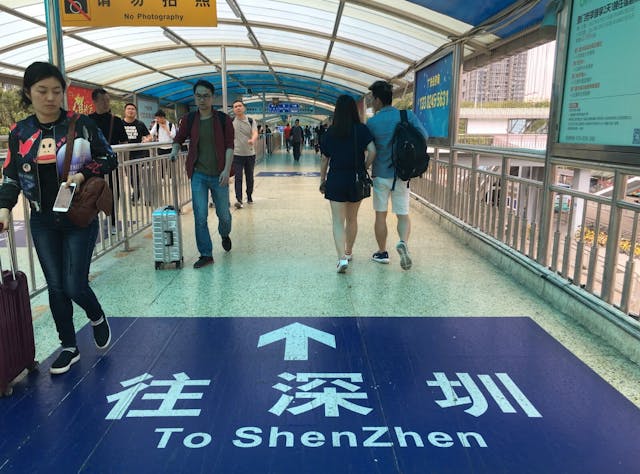
然而,年輕人往往更願意搬到大灣區工作和居住。2021年12月至2022年1月,香港廣東青年總會對1000名年齡在15歲至39歲之間的受訪者進行了調查。調查發現,35%的受訪者認同或非常認同大灣區發展規劃。另外,在35至39歲的年齡層中,48%的受訪者有興趣在大灣區發展自己的事業。
有趣的是,80%的受訪者希望大灣區的工作每月收入至少為2萬港元。在影響他們在大灣區求職的因素中,薪資水平是最受關注的,其次是公司前景和晉升前景。79%的受訪者了解大灣區青年就業計劃,但只有43%的受訪者對此就業計劃感興趣,46%的受訪者不感興趣。
香港廣東青年總會向特區政府提出28項政策建議,以完善落實香港與大灣區深度融合,包括放寬申請大灣區就業計劃的要求,將5年內大學畢業的香港青年納入其中、政府津貼企業由一年半延長至兩年半、擴充駐粵經濟貿易辦事處(駐粵辦)及粵港澳大灣區發展辦公室的職能、在大灣區設立港式社區,以便更多年輕人融入當地工作和生活。
2022年5月,香港青年協會發表報告,提及希望在大灣區工作和居住的香港人技能(見《香港青年在大灣區就業競爭力研究》摘要,2022年5月)。5項技能分別是專業能力(專業知識應用能力、專業操守、誠信和責任心)、創新能力(數碼能力和自學能力)、語言能力(普通話和英語)、開放性(跨文化能力、可持續發展思維和國際視野)、團隊合作(情緒智商、溝通及協作能力、靈活變通)。所有這些技能對於那些希望移居大灣區並在那裏工作和居住的香港人來說都至關重要。
不幸的是,上述技能對很多香港人來說並不清楚,他們對大灣區感到疑慮,又擔心自己的適應力和競爭力是很自然的事。
2022年8月,團結香港基金發表了一份報告,介紹內地人才如何融入香港,以及如何幫助他們適應香港的生活。隨着引進全球人才計劃在香港實施,以及更多內地人才進入香港,香港社會似乎理所當然地認為他們能夠輕鬆適應香港的生活。
令人驚訝的是,澳門缺乏年輕人對大灣區態度的調查。2023年5月,澳門經濟民生聯盟對1040名青年對大灣區的態度進行了調查,發現71%青年對到珠海發展不感興趣;60%青年不知道珠海有協助澳門青年在當地發展事業的計劃;30%的受訪者對珠海的交通和環境並不熟悉。
有趣的是,是次受訪者所具備專業知識範疇的首3位為管理學、教育學和文學──這反映了樣本的選擇。那些想在珠海發展事業的受訪者,希望從事文體娛樂、教育和金融等行業居多。與中大調查的香港受訪者一樣,澳門受訪者認為,影響他們是否在內地工作和居住的決定性因素有幾個:薪酬待遇、工作環境和發展機會。如前所述,香港受訪者期望月薪為20000港元,而澳門受訪者則希望月薪至少為12000元和20000元人民幣或以上。
澳門經濟民生聯盟建議,澳門政府應向澳門民眾發放更多有關內地就業計劃的信息;考慮創造能夠留住和吸引澳門青年的就業機會,降低跨境就業的交通費用,並可與內地企業或政府部門探討為在內地工作、居住的澳門青年提供住宿。
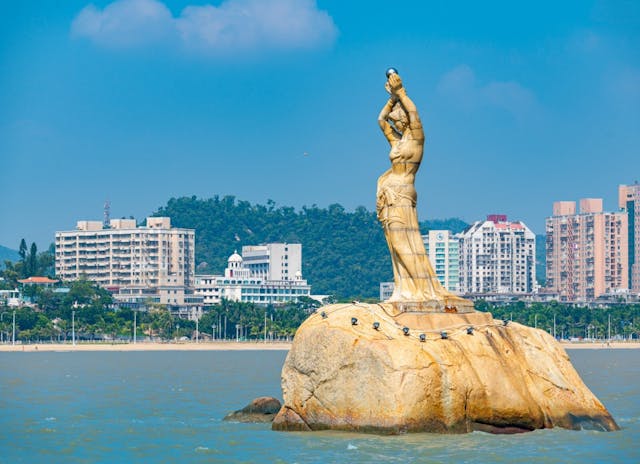
香港和澳門特區政府現在都制定了鼓勵年輕人在大灣區就業、居住和工作的計劃。然而,這樣的計劃缺乏足夠宣傳,也無法推廣至社會各個層面。
儘管港澳特區與大灣區城市的融合有望加速,但困難在於這種融合可能會導致港澳兩座城市人才短缺。因此,港澳也歡迎全球人才的引進,其中大部分來自內地,也包括來自大灣區的人才。港澳政府面臨雙重的挑戰:一方面,他們需要為年輕人考慮在內地工作和居住提供更多的資訊和宣傳;另一方面,他們也必須留住本地人才並吸引內地人才。
人才由港澳向內地流動,以及由內地向兩座城市流動,需要處理以下幾個亟待解決的問題:(一)對港澳本地人,特別是對大灣區了解肯定是片面和不充分的港澳青年的宣傳教育工作;(二)與大陸城市及企業協調如何利用兩個特別行政區政府的補助聘用港澳人員;(三)要留住香港和澳門本地人才,他們可能需要進一步降低跨境交通成本,以便更容易從家中往返工作地點;(四)需要與內地城市、企業合作為港澳青年到內地就業提供住宿;(五)有必要幫助內地人才更容易適應港澳的生活,使他們的潛力和專長能夠得到最大程度的發揮。
從教育的角度看,香港和澳門的大學很少有課程能夠更深入、跨學科或多學科地了解大灣區。過去,中國研究在港澳的大學很盛行。令人不解的是,大灣區快速發展起來,港澳大學卻反而缺乏對這方面的關注。由於港澳重視國民教育,本地中學生有比以往更多機會參觀大灣區的學校和景點。儘管如此,參觀內地歷史文化景點和學校,並不等如學生對大灣區有更深入的了解。
總結來說,筆者希望港澳有更多的智庫、研究機構和相關團體能夠願意對公眾對大灣區的態度,進行更多的研究。此外,港澳兩地政府有必要加強對內地就業計劃的教育和宣傳工作,並給予適當津貼,鼓勵本地人到內地體驗工作和發展事業。與大灣區融合不應被視為簡單的零和遊戲,應創造雙贏的局面;政府組織和半政府組織提供的研究經費應考慮為研究人員、教育機構和相關團體提供更多補助和津貼,以開展與大灣區及其與港澳一體化相關的各種研究,特別是在創新科技、運輸物流、貨幣金融等領域。其他如文化及歷史旅遊、酒店及酒店業,以及可持續發展,也應在研究、組織網絡和個人潛力最大化方面得到培育和鼓勵。不僅是港澳特區政府,還有兩地的研究機構、資助機構、相關團體和青年組織,仍有很多工作要做。
Public attitude in Hong Kong and Macau toward the Greater Bay Area
Little research has been conducted to integrate the recent findings on the attitude of members of the public in Hong Kong and Macau toward the Greater Bay Area (GBA). This article aims at filling the gap in the existing reports and studies in the GBA and making concrete suggestions on how better understanding of the GBA can and will be fostered.
The Institute of Hong Kong and Asia Pacific Studies at the Chinese University of Hong Kong (CUHK) conducted a survey between the end of November and early December 2022. The survey found that 79 percent of the respondents would not go to work and reside in the GBA – an increase of 25 percent compared with a similar question in the 2021 survey. Those respondents who said that they would go to work and reside in the GBA amounted to only 10.1 percent in late 2022 – a decrease of 21 percent from 2021. The 2022 survey also asked the respondents whether they would encourage the young people of Hong Kong to develop their career in the GBA cities, but 62.7 percent of them said that they would not encourage the youth to develop their career there, and only 4.2 percent replied that they would do so depending on the conditions.
Clearly, the survey data in 2022 were not pointing to a promising direction of the GBA development, if the focus were on whether the people would go to work and reside there, and whether the youth would be encouraged to do so.
However, the 2022 survey findings showed some positive aspects. Thirty-four percent of the respondents believed that the GBA blueprint provided developmental opportunities for Hong Kong, 20.6 percent said it could not provide development chances, and 36 percent replied to half-half opportunities. The result was slightly in favor of Hong Kong’s development, but there were doubts in the minds of the respondents.
When asked about how the GBA plan would facilitate Hong Kong’s development, Table 1 below sums up the findings, which show that almost 40 percent of the respondents agreed that the GBA can and will help Hong Kong’s financial and monetary development, while slightly more respondents believed that the GBA can and will facilitate Hong Kong’s transport and logistics. Interestingly, a smaller percentage (35.9 percent in 2022) perceived the GBA as beneficial to Hong Kong’s innovation and technology.
Judging from these findings by the end of 2022, there was a gap in the public perception of GBA and the GBA’s potential contributions to Hong Kong. Given the fact that the GBA, especially Shenzhen, has been developing technology and innovative industries rapidly, it must provide the knowledge and expertise in Hong Kong’s innovation and technological development. As such, the government of Hong Kong and the related innovation and technological sectors should educate the members of the public more on the GBA.
Table 1: The extent of agreement with the idea that
the GBA plan facilitates Hong Kong’s industrial development.

Note: The sample size in July 2021 was 706 and that in November 2022 was 703. I modified the original Table.
Source: The Institute of Hong Kong and Asia-Pacific Studies, CUHK, in 中大香港亞太研究所民意調查 (cuhk.edu.hk), access date: January 20, 2024.
When asked whether Hong Kong would benefit from the GBA blueprint, in November 2022 only 22.1 percent of the respondents said that there would be more benefits, 15.3 percent replied that there would be more negative impacts on Hong Kong, 49.2 percent said half beneficial and half disadvantageous to Hong Kong, and 13.4 percent did not know. Hence, the results were mixed with doubtful attitudes toward the GBA integration with Hong Kong, while a minority perceived the city’s integration with the GBA as having negative impacts. Again, while most respondents adopted a wait-and-see attitude, the public knowledge of the GBA was superficial.
When asked about whether Hong Kong people have a developmental edge in the GBA cities, the November 2022 findings showed that only 22.5 percent of the respondents perceived a “fairly big edge” in the GBA, 3.9 replied with a “very big edge,” 37.2 believed in a “very small edge,” 20.7 said there would be “no developmental edge,” and 15.8 percent did not know. Therefore, about 58 percent believed that there would be either a small developmental edge or no edge at all, reducing their incentives to work and reside in the GBA indeed.
The survey findings of the CUHK Institute of Hong Kong and Asia Pacific Studies appeared to have similar findings with that of the Hong Kong Public Opinion Center (POC). The POC conducted an online survey on public attitudes toward the GBA from April 2021 to April 2022, the findings of which were released in late April 2022. The POC found that among the 5,671 respondents over 12 years old, 51 percent were reluctant to reside in the GBA, 26 percent were willing to do so, and 20 percent said they were half-hearted in residing in the GBA. Eighty-seven percent of those who perceived themselves as “supporters of the democrats” were unwilling to reside in the GBA, compared with 32 percent of those who perceived themselves as “supporters of the pro-establishment” forces. The CUHK data even showed 79 percent of the respondents in November 2022 were reluctant to work and reside in the GBA.
Hence, the two findings showed that most Hong Kong people were unwilling to move to work and reside in the GBA – a reflection of their ingrained habit of residing in Hong Kong and reluctant to relocate to work and live in the mainland easily.
However, young people tend to be more willing to move to work and reside in the GBA. From December 2021 to January 2022, the Hong Kong Guangdong Youth Federation conducted a survey of 1,000 respondents aged between 15 and 39 years old. The survey found that 35 percent of the respondents agreed with and strongly agreed with the GBA blueprint. Moreover, in the age group of 35 to 39 years old 48 percent of the respondents were interested in developing their career in the GBA.
Interestingly, 80 percent of the respondents hoped that jobs in the GBA would have at least HK$20,000 per month. Among the factors shaping their selection of jobs in the GBA, the salary level is the foremost concern, followed by the prospects of the company and their promotion prospects. Seventy-nine percent of the respondents learnt about the plan of youth employment in the GBA, but only 43 percent of them were interested in this employment scheme while 46 percent were uninterested.
The Guangdong Youth Federation suggested 28 measures for the Hong Kong government to improve its implementation of Hong Kong’s deeper integration with the GBA, including the relaxation of youth requirements to apply for the GBA employment scheme to include those university graduates within five years, the extension of government subsidies from on year to two years and a half, the expansion of the duties and responsibilities of the GBA development office, and the setting up of the Hong Kong style of residence in the GBA so as to facilitate more young people to move into the GBA to work and reside there (HK01, August 30, 2022).
In May 2022, the Hong Kong Federation of Youth Group published a report in which the skills set of those Hong Kong people who want to work and reside in the GBA were mentioned (see The Study Abstract of the Competitiveness of Employment of Hong Kong Youth in the Greater Bay Area, May 2022). The five skills are professional competence (professional knowledge, conduct, sincerity and integrity), innovative ability (digital ability and self-study ability), language ability (Putonghua and English), openness (cross-cultural ability, sustainable development thinking and international horizon), and being a team player (emotional wisdom, communicative ability, flexibility and agility). All these skills are essential to those Hong Kong people who wish to migrate to the GBA, working and residing there.
Unfortunately, the skills set mentioned above are unclear to many Hong Kong people, whose doubts on the GBA and their own adaptative ability as well as competitiveness are natural.
In August 2022, Our Hong Kong Foundation published a report on how mainland talents would be absorbed into Hong Kong and how they can and will be assisted in their adaptation to Hong Kong’s life. With the implementation of the import of global talents scheme in Hong Kong, and with the entry of more mainland talents into the Hong Kong special administrative region, it seems that the society of Hong Kong takes it for granted that they can and will adapt to Hong Kong life much easier.
Surprisingly, in Macau there is a lack of public opinion surveys on the attitude of young people toward the GBA. In May 2023, a Macau interest group, namely Macau Economic and Livelihood Alliance, conducted a survey on the attitude of 1,040 youths toward the GBA and found that 71 percent of them were uninterested in developing their career in Zhuhai, while 60 percent of them did not know that Zhuhai had a scheme assisting the Macau youth to develop their career there (Exmoo News, May 25, 2023 and Jornal San Wa Ou, May 23, 2023). Moreover, 30 percent of the respondents were unfamiliar with Zhuhai’s transport and environment.
Interestingly, the three disciplinary knowledge of the respondents included business management, education and literature – a reflection of the selection of the sample. Those respondents who wanted to develop their career in Zhuhai wanted to find jobs in sports, recreational industry, education and monetary and financial sectors. As with the Hong Kong respondents in the CUHK survey, the Macau respondents believed that several factors are decisive in influencing whether they will work and reside in the mainland: namely the salary level, the work environment, and the developmental and promotion opportunities. While the Hong Kong respondents expected HK$20,000 salary per month, as mentioned before, the Macau respondents hoped for at least Renminbi 12,000 and 20,000 or above.
The Macau Economic and Livelihood Alliance suggested that the Macau government should provide more information to the Macau people on the mainland employment scheme, that it should consider the possibility of creating jobs that can retain and attract Macau youths, that it considers lower the cross-border transportation costs, and that it may discuss with mainland enterprises to provide accommodation for Macau youths who work and reside in the mainland.
In Hong Kong and Macau, the government now has a scheme for the young people to find jobs, reside and work in the GBA. However, such a scheme lacks sufficient publicity. Nor can it reach various levels of society.
The dilemma is that while integration with the GBA is expected to be accelerated, such integration can lead to the lack of talents in the two cities. Hence, the two cities have also embraced the import of global talents, mostly from the mainland and including those from the GBA. The challenges for the governments of Hong Kong and Macau are twofold: on the one hand they need to provide more information and publicity work for the youths to consider working and residing in the mainland, but on the other hand they must retain local talents and attract mainland talents.
The migration of talents, from Hong Kong and Macau to the mainland, and from the mainland to both cities, needs to deal with various burning issues: (1) publicity and educative work on the local Hong Kong and Macau people, especially the youths whose knowledge of the GBA is certainly partial and inadequate; (2) the coordination with mainland cities and enterprises on how they can hire Hong Kong and Macau people with subsidies given by the governments of the two special administrative regions; (3) the need to retain local Hong Kong and Macau talents who may have to be assisted further through cheaper cross-border transportation costs for them to perhaps commute more easily; (4) the need to work with mainland cities and enterprises to provide accommodation for Hong Kong and Macau youths to work in the mainland; and (5) the necessity of helping mainland talents to adapt to the life of Hong Kong and Macau more easily so that their potential and expertise can and will be maximized to the fullest extent.
From an educative perspective, universities in both Hong Kong and Macau have very few programs in understanding the Greater Bay Area in a much deeper way, disciplinarily or multi-disciplinarily. In the past, China studies were popular in Hong Kong and Macau universities. Interestingly, with the rapid development of the GBA, such focus is ironically lacking in Hong Kong and Macau universities. At best, local secondary school students have more chances to visit schools and sites in the GBA than ever before, thanks to the emphasis on national education in Hong Kong and Macau. Still, visits to mainland historical and cultural sites and schools do not mean that students have a deeper understanding of the GBA.
In conclusion, it is hoped that more think tanks, research organizations and interest groups in Hong Kong and Macau can and will conduct more research on the public attitudes toward the GBA. Moreover, it is imperative for the governments of both Hong Kong and Macau to do more in terms of education and publicity work on the mainland employment scheme, with appropriate subsidies so that locals can be encouraged to experience their work and career development in the mainland, creating a win-win scenario in which integration with the GBA is not seen as a simplistic zero-sum game. Research grants offered by governmental organizations and semi-governmental organizations should consider more grants and subsidies for researchers, educational institutions and interest groups to conduct all kinds of research related to the GBA and its integration with Hong Kong and Macau, especially in the areas of innovation and technology, transport and logistics, and financial and monetary sectors. Other areas like cultural and historical tourism, the hotel and hospitality industry, and sustainable development should also be fostered and encouraged in terms of research, organizational networking and the maximization of individual potential. Much remains to be done by not only the governments of Hong Kong and Macau, but also the research organizations, funding agencies, interest groups and youth organizations in the two cities.
原刊於澳門新聞通訊社(MNA)網站,本社獲作者授權轉載。原文網址:http://tinyurl.com/2b7ja9ym








